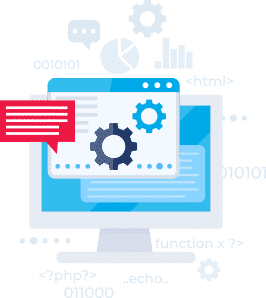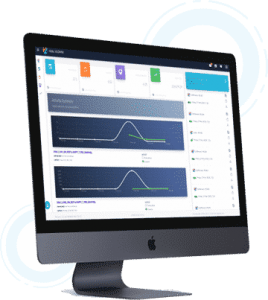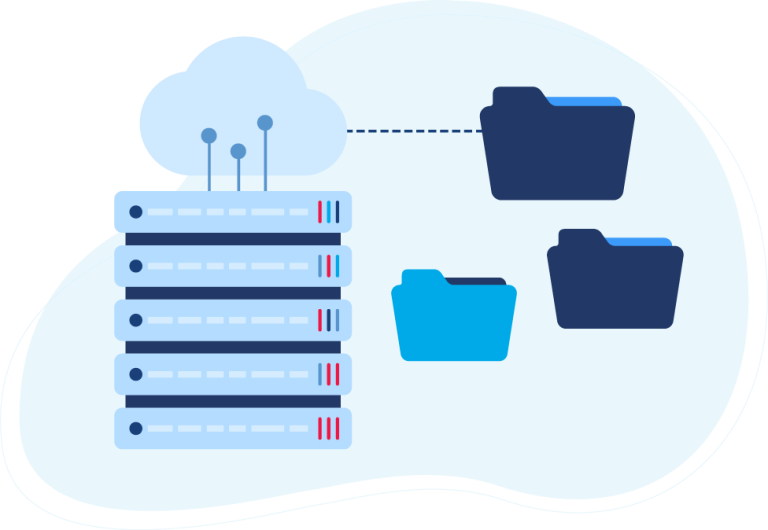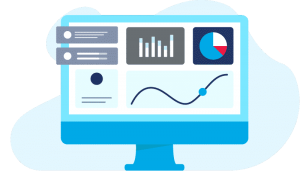What is iPaas?
Everything you need to know about iPaaS, or also known as Integration Platform as a Service.
What you need to know:

Integration 101: An Introduction to iPaaS
We live in the future of data integration where growth usually comes hand-in-hand with adding and modifying channels, trading partners, and — of course — applications.
An iPaaS, or integration platform as a service, is a platform to connect software applications through integrations within the cloud. A solution to integrate multiple cloud and on-premises services securely.
Fast- growing companies can simplify their operations by automating processes and the flow of data across sales channels with an iPaaS service. Thus, they can scale more and meet the increased volume of sales and changing customer expectations.
The Difference Between SaaS and iPaaS
VL OMNI’s CEO and Co-Founder, Robin H. Smith explains the difference between iPaaS and SaaS technologies in the video below.
Keep reading for a more in-depth explanation.
What is SaaS?
Saas or software as a service is a subscription for a service where you don’t physically own the technology as it is hosted in the cloud. Through the subscription, a business makes an operational expenditure rather than a capital one.
SaaS cloud-based software solutions are most commonly accessed via a website or apps. Other widely used cloud solutions include Integration as a Service (iPaaS), Platform as a Service (PaaS) and Infrastructure as a Service (IaaS).
iPaaS vs SaaS
Gartner coined the term “iPaaS”, also known as integration platform as a service. This integration service is built around microservices, meaning snippets of code that execute distinct functions. In an iPaaS, effective microservices represent a suite of cloud services that perform integration functions and flows. Just like a SaaS service, businesses can get access to an iPaaS service to unify their eCommerce operations.
17,000+
The average number of orders processed by merchants through VL OMNI on BFCM
The Challenge that Integration Seeks to Solve
With a wide variety of applications existing on the cloud that are easy to deploy, the biggest challenge businesses now have is how to centralize data and cloud software under one platform to oversee operations.
Lack of visibility happens when disparate applications are not fully synchronized, leading to manual processes and errors. Thus, growing business need agile data integration to seamlessly manage order data, connect applications and channels, and scale.
Whether you sell on Shopify, Amazon or Walmart, social media, in person — or anywhere else, efficient data integration across your inventory and fulfillment network will help you stay stocked and profitable. In fact, without unified data, scalability and growth are impossible.

Most Common Data Integration Approaches
In spite of the challenges of cloud integration, new solutions are on the rise. Choosing an integration solution depends on your budget, complexity of operations, business needs and plans for growth.
Native Integrations
A native integration utilizes data inputs from one software to enhance the user experience and functionality of another. This is a method to quickly connect applications together.
However, native integrations are typically static and in a programming language that cannot evolve with the market as it requires the renewal of the provider’s license. Because of its limited scope, native integration is not the best option to handle customization and added functionality.

Do-It-Yourself (DIY) or Custom Coded Integrations
Custom coded solutions are ideal for larger enterprise-level businesses with an IT team that can maintain the hardcoded integrations and extensive documentation. While technology investments like integration need to be resilient to change, DIY integrations are structurally rigid.
Every change or new integration would have to be manually hardcoded for each project every time. Making the integration solution heavily dependent on technical resources to scale.

Plug-and-Play (Point-to-Point) Integration
Similar to native integrations, plug-and-play integrations work like apps that are convenient and cost-effective. They are best-tailored for small to medium size businesses that have few complexities in their sales and/or supply chain.
Point-to-point integrations typically only manage common workflows at a very basic level and are not designed with the flexibility to accommodate larger processes done by growing businesses. In general, these solutions cannot change to fit exact needs and are low-end in their functionality.

Integration as a service (iPaaS)
Like VL OMNI’s integration platform, iPaaS solutions can carry out a variety of integration patterns — not just point to point. They have the unique ability to modify and clone workflows in real-time, meaning less time and money to get new connections up and running.
In fact, adding, modifying, or removing new channels, trading partners, or applications is no longer constrained to a linear function. Enter point-to-multipoint data integration.
How iPaaS Technology Solves Data Integration Challenges
Unlike the DIY approach, an integration platform as a service promotes agility, flexibility, and efficiency. iPaaS solutions serve as a central point to unify applications for businesses with complexity and a growing number of transactions.
This is how the biggest names in eCommerce can keep up with their growth while creating a flawless customer experience from the get-go. iPaaS solutions like VL OMNI seek to solve the challenge of cloud integration.

Advanced Features of iPaaS Solutions
Automate and Gain Visibility
Automate simple to complex business processes across your business. Hosted in the cloud, an iPaaS enables you to unify your key sales channels.
Integrate
Move data from a single application to many — and back again. Our managed service supports real-time integration with the goal of minimum disruption to create a great customer experience.
Grow
An iPaaS is designed for growing businesses who want to grow fast, sell more and streamline processes while innovating for the future and creating great customer experiences.
Pre-Built Connectors
Pre-built connectors are configured to the needs of your business as no size fits all. Brands can enjoy more functionality in their integrations and workflows.
VL OMNI: More than a Platform. A Partner for Agile and Scalable eCommerce Integration
VL OMNI is both an iPaaS, an integration platform as a service, and a SaaS offering, meaning we are a software as a service subscription. Our technology is iPaaS and SaaS is the consumption model where our solution fits in.
Not knowing how to create robust data integration strategy can be a real pain point for any business. At VL OMNI, we understand how confusing integration at the iPaaS level can be. This is why we work closely with you and your team to understand your needs and configure an integration solution that meets your goals and strategy.

Merchants (and their customers) deserve to get the most value out of their systems. More than an iPaaS managed service, VL OMNI guides fast growing global brands to scale and build a more robust future. From ecommerce platforms, ERPs, fulfillment applications, marketplaces, and more, integrate your applications to accelerate your growth with VL OMNI.
If you think you’re ready for SaaS-based system integration, contact us to learn about our iPaaS managed service.
 D365 Business Central
D365 Business Central Netsuite
Netsuite

